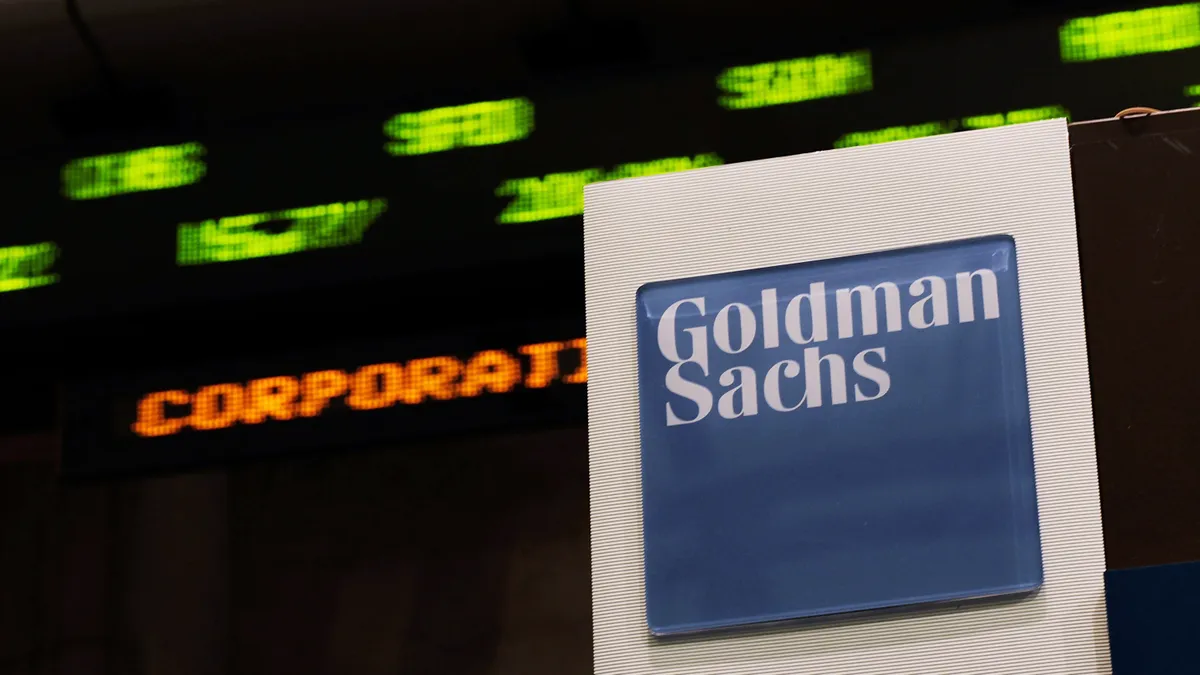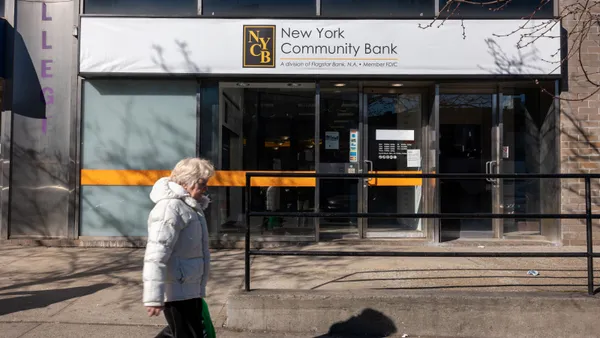Dive Brief:
- Ed Emerson, Goldman Sachs’ head of global commodities, will retire in March after a 24-year stint at the bank, Reuters reported Tuesday, citing an internal memo.
- Emerson ranks as one of Goldman’s top-paid executives, earning roughly $100 million over the past three years, people familiar with the matter told Bloomberg. CEO David Solomon, by comparison, took in $77.5 million over the same time frame, the wire service reported.
- Xiao Qin and Nitin Jindal will become co-heads of Goldman’s commodities operation in Emerson’s stead, according to a separate memo seen by Reuters. Emerson will stay on as an advisory director, the wire service reported.
Dive Insight:
In addition to being a top earner at Goldman, Emerson is known throughout the firm as a vocal critic of Solomon’s leadership — though he reportedly remains close with the bank’s president, John Waldron, and its trading boss, Ashok Varadhan, a source told Bloomberg.
“Ed was getting to a place in his career he was deciding what he wants to do next,” Waldron told CNBC on Tuesday, adding that Emerson “cares a lot about the commodities franchise and about how it transitions.”
Emerson joined Goldman in 1999 as an analyst and “played a critical role in advancing the firm's oil business," Varadhan wrote in a memo alongside Dan Dees and Jim Esposito, the other leaders of Goldman's global banking and markets division, according to Reuters. Emerson was named a managing director in 2008 and partner in 2012, the wire service reported.
Goldman’s commodities unit has long held a pipeline to leadership opportunities firmwide. Solomon’s predecessor as CEO, Lloyd Blankfein, had a background in commodities, as did Waldron’s predecessor as president, Gary Cohn.
But the business has also seen its share of volatility over the past six or seven years. The unit notched a low of $300 million in revenue in 2017, the New York Post reported. That spurred Goldman’s upper management to consider cutting the unit or starving it of capital, according to Bloomberg.
The COVID-19 pandemic and various geopolitical conflicts added to the unit’s ups and downs. Goldman’s commodities business saw windfalls of around $2 billion in 2020 and 2021, and revenue spiked above $3 billion last year, according to Bloomberg. That figure, though, is down significantly over the first nine months of 2023, Goldman filings show.
For his team’s efforts in 2021, Emerson received a $30 million bonus last year, the New York Post reported.
Emerson’s departure stands as another reminder of the talent drain Goldman has seen over the past few months, as several executives who’ve logged more than 20 years with the firm have left. That roster includes Julian Salisbury, Goldman’s onetime global co-head of asset management, who left in July to become co-chief investment officer at Sixth Street Partners. Luke Sarsfield, a 23-year Goldman veteran and fellow global co-head of asset management, left the firm in April and later became CEO of Dallas-based asset manager P10. And John Rogers, Goldman’s chief of staff, who joined the firm in 1994, left in August.
As for Emerson’s successors, one has a background in oil, like his predecessor. Qin runs trading for oil and refined products worldwide at Goldman, and also leads commodities trading in Europe, the Middle East, Africa and Asia Pacific. He became a managing director in 2010 and partner in 2016, according to Reuters.
Jindal manages commodities trading in the Americas and natural gas and power trading in North America. He joined Goldman as a partner in 2018, the wire service reported.














